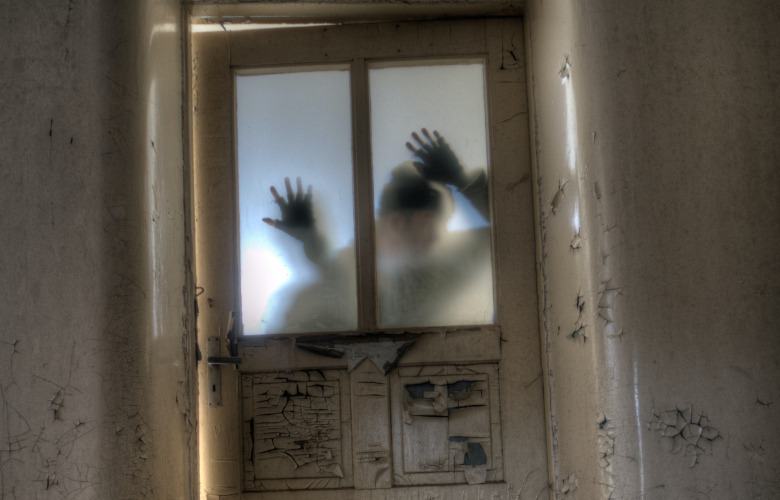
There is a psychological phenomenon called ‘The Uncanny Valley’ which apparently explains a lot regarding our fear of zombies. Countless movie producers have cashed in on that fear thus far. And the directors creating the myriad of zombie movies have entertained and scared us in the most delightful ways. Let’s take a look at the history and psychology behind it all.
The fear of zombies has been given its own psychological term: Kinemortophobia.
Kinemortophobia, or the fear of zombies, is surprisingly common.
Zombies play a major role in horror fiction from novels to Hollywood films and are a staple at most major Halloween events.
The term “zombie apocalypse,” which refers to a pandemic in which zombies take over the planet, is a relatively new concept.
Zombie fears, however, are much older. The modern image of the zombie draws from a multitude of sources including West African voodoo lore and more generalized ideas of the undead.
The modern notion of what a zombie is can be traced to the Haitian Voodoo folklore of the 17th and 18th centuries.
At that time, it was rumoured that African slaves on sugar plantations who committed suicide to escape their miserable existence were denied entry into eternal paradise and were condemned instead to trudge around the Earth without a soul.
Over time, this legend morphed into the Voodoo belief that priests (called Bokors) had the power to turn people into zombies.
The unfortunate individual chosen as a zombie-to-be would be poisoned by the Bokor, causing vital signs such as heartbeat and breathing to diminish to the point where the individual appeared to be dead.
Consequently, the person would be buried alive. That individual was later exhumed by the Bokor, and he or she would then remain under his spell forever.
To add insult to injury, the person was usually brought back to life without the benefit of speech or free will.
The word “zombie” comes from the Kongo word “nzambi” by way of the Creole word “zonbi” – both words refer to a dead person who has been brought back to life.
Current monikers for zombies such as “the undead” or “the living dead” have managed to remain true to this original meaning.
Why do zombies scare us so much?
Why do we watch zombie movies? Why can’t we get enough of them? And what is it that we find so interesting and terrifying about zombies?
The answer seems to be the little-known psychological phenomenon, called ‘The Uncanny valley.’
The “dead” eyes and near-human characteristics of zombies provoke an instinctive disquiet in us. This is down to our inability to process these “strange” faces using normal psychological mechanisms.
We are used to seeing and processing human faces and objects, but seeing an eerie, near-human image such as a zombie triggers fear. The face we see technically has all the features that should make it recognisable to us as a human – but instead we are faced with something feral, lacking humanity.
Our brains don’t know how to process what we are seeing. This invokes terror in our subconscious mind and the fight or flight reflex is engaged.
Thankfully, at that moment, we are sitting in front of a screen and are not running down a dark alleyway.
So, the fight or flight reflex at that moment showers us with adrenalin and we walk out of the movie theatre with heightened senses and feeling as if we have just conquered the zombie apocalypse ourselves.
The term “Uncanny Valley” was coined in 1970 by a Japanese robotics engineer to describe how people’s reactions to robots changed as they were made to look more like humans.
‘The Uncanny Valley’ is often described as the sense of unease that accompanies the sight of something almost, but not quite, human.
As a robot is gradually given facial features and softer lines, people feel an affiliation and even an affection for it (think of Sonny in the film iRobot).
However, as human-likeness increases, this escalating warmth does not continue in a steady line from artificial to human. Instead, at the almost but not quite human point, people suddenly find this near-human agent eerie and are repulsed by it – this deviation point is ‘The Uncanny Valley.’
And, of course, this pertains to our reaction to whatever creature or machine with profoundly human-like features we’re confronted with… be it zombies, robots, or anything in between. We will feel an instant horror.
The movies of the last two decades have evolved and have capitalized more on this fear of ours. In the greatest, most brilliantly creative ways I must say.
Sometimes with humor – as in Shaun of the Dead. Or with intelligent and cinematographically beautifully designed, epic horror as in World War Z.
As the zombie apocalypse is lingering more and more in everyone’s imagination, it has found its place into all kinds of pseudo-scientific literature.
The term “zombie apocalypse” has entered the popular lexicon. There are now innumerable books and websites dedicated to teaching people how to survive a zombie infestation.
So read up! You have no excuse for helplessness now if the occasion arises.
The Centers for Disease Control (CDC) has even gotten in on the act, publishing a website with directions on how to proceed in the event of a zombie apocalypse.
The CDC published “Preparedness 101: Zombie Apocalypse” to the Public Health Matters blog in 2011. This was, however, done with a twinkle in their eye.
The post was an example of educational entertainment. It used the popular cultural reference to zombies to promote preparedness for different emergencies and disasters. Sadly, the campaign is now retired.
Psychology Today: Why We Fear Zombies
Understanding Kinemortophobia or the Fear of Zombies
The Conversation: – Why the fear of zombies? Look at the eyes
2021’s Best Cities for Surviving a Zombie Apocalypse
So, What Happens When You Google “Cat Ballet”?
Bewegtes Land, an Art Project For Train Passengers


Liam Klenk was born in Central Europe and has since lived on four continents. Liam has always been engaged in creative pursuits, ranging from photography and graphic design, to writing short stories and poetry, to working in theatre and shows. In 2016, Liam published his first book and memoir, 'Paralian'.
Read Full Profile© 2021 TheatreArtLife. All rights reserved.

Thank you so much for reading, but you have now reached your free article limit for this month.
Our contributors are currently writing more articles for you to enjoy.
To keep reading, all you have to do is become a subscriber and then you can read unlimited articles anytime.
Your investment will help us continue to ignite connections across the globe in live entertainment and build this community for industry professionals.